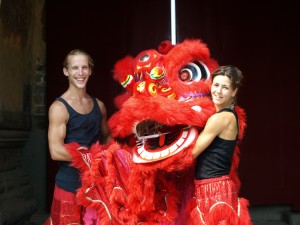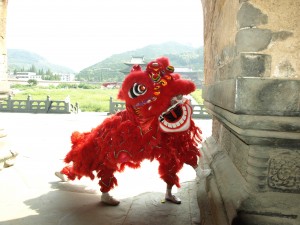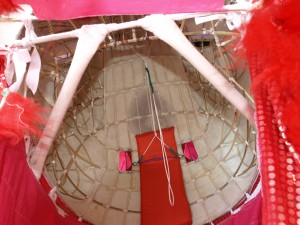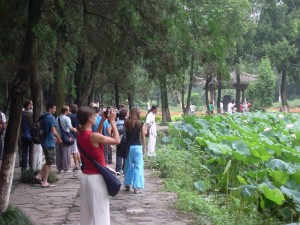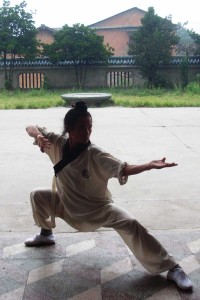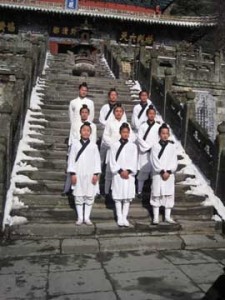 Life here at the Kungfu Academy, by design and by nature, puts a lot of pressure on those who study here. It’s not the same as the pressure of family and a job, but it is the pressure of discipline, of high expectations. Watching myself and others metamorphose under this pressure has got me thinking lately. I feel that the pressure is moderated by our meditation practice, but different people respond to the meditation differently and thus cope with the weight of discipline differently. If you’ve read my earlier post on internal self defense, you’ve been exposed to the idea of the power our choices about our outlook have on our lives. This is another case of the power of choice.
Life here at the Kungfu Academy, by design and by nature, puts a lot of pressure on those who study here. It’s not the same as the pressure of family and a job, but it is the pressure of discipline, of high expectations. Watching myself and others metamorphose under this pressure has got me thinking lately. I feel that the pressure is moderated by our meditation practice, but different people respond to the meditation differently and thus cope with the weight of discipline differently. If you’ve read my earlier post on internal self defense, you’ve been exposed to the idea of the power our choices about our outlook have on our lives. This is another case of the power of choice.
I want you to understand why discipline is necessary here. We all have a concept of our limitations that stops our forward progress. It is very difficult to break past these limits alone. Even harder are the limits we can’t conceive of, the blind spots in our development. Only someone who has walked the path before you can push you past these limits. And the only way a Master’s pushing can have an effect is through discipline, through the willingness to conform to his standards.
The discipline we experience exists on different levels. Showing up to class on time, being accountable for our activity during practice, demanding the most of ourselves when we train: these are all instances. There are many times when one’s individual wants must be subordinated to this discipline. I think for some people, this is difficult. I sense, from their words and actions, that subordinating themselves threatens their sense of identity. They begin to feel like a robot, unthinkingly obeying commands. Their visceral response is to act out, to assert their individualism by rejecting the patterns of the group, ie, cronic tardiness or sullen reception to instruction. By acting out, they convince their teachers only that they are in need of more discipline.
Choice enters at that moment of subordination. There is no freedom in the choice to follow group expectation or not to, because the definition of the group still defines you either way. The empowering choice is the choice to be free of these terms of self-identity. One can choose not to define oneself in terms of the group at all, so following or not is irrelevant.
Once this freedom is found, there is only one worthwhile test for whether to follow expectation or not: happiness. Which choice makes you happy? If respectfully following the group enhances your training and allows peace of mind, you need not fear becoming an unthinking robot. You are following your feelings. You are no longer bound to the group by heavy chains of discipline, but are freely moving in the same direction as like-minded people. It does not matter that you are meeting external demands, because they merely coincide with the demands you make of yourself.
Many people will accuse me of performing a semantic illusion, of covering over reality with empty words. They will assert that if you follow, you are not free and self-determining. All I can say is that, if you are striving to be free and self-determining but also suffering from anger and depression, maybe it is time to re-examine some of your assumptions about choice. For me, this is the only way forward in my training, in which the expectations of my Master and teachers help me to raise my own.

